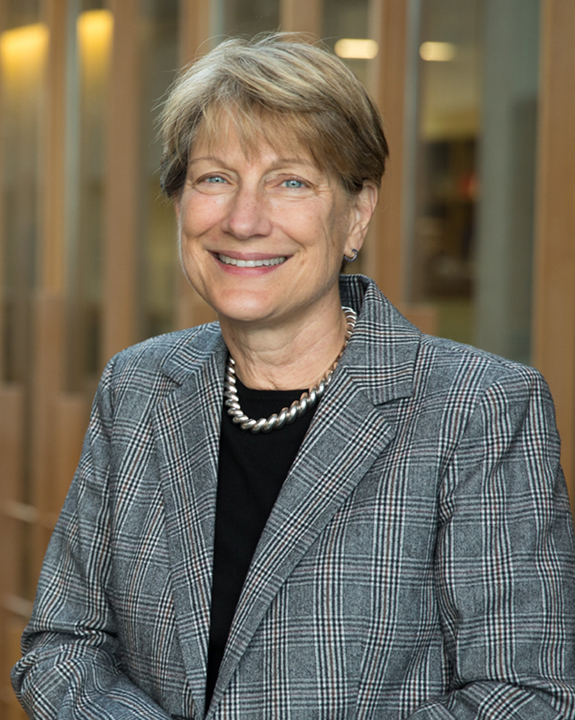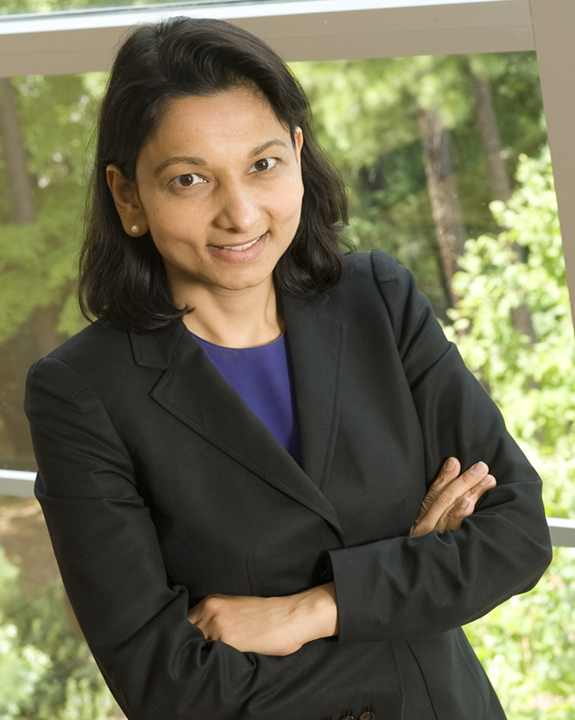Panel 4: The Role of University-Industry Relationships in Universities’ Research Missions
Friday, March 4, 2022 | 11:15 a.m.–12:45 p.m. (ET)
The 1980 Bayh-Dole Act (and related statutes from that time period) aimed to boost U.S. competitiveness by fostering closer relationships between universities and industry. Particularly given differences in the global economy between 1980 and 2022, what is working well and what should be changed? To what extent is it realistic, or desirable, for the creation of domestic jobs, including manufacturing jobs (a current political priority) to be a focus for university technology transfer? Is it realistic, or desirable, for universities to favor smaller or startup firms over more established firms? Bayh-Dole envisioned intellectual property rights, particularly patents, as a major mechanism universities and industry would use to interact. What is the current role of formal IPRs relative to other forms of interaction?
Panel
MARYANN FELDMAN, The University of North Carolina at Chapel Hill
KARL KOSTER√Massachusetts Institute of Technology
DAVID REESE, AMGEN Inc.
SANDY WILLIAMS, Duke University
ARTI RAI, moderator, Duke Law School

Professor, The University of North Carolina at Chapel Hill
Maryann P. Feldman is the Heninger Distinguished Professor in the Department of Public Policy at the University of North Carolina, an Adjunct Professor of Finance at Kenan-Flagler Business School and a Research Director at UNC Kenan Institute of Private Enterprise. Her research and teaching interests focus on the areas of innovation, the commercialization of academic research and the factors that promote technological change and economic growth. Dr. Feldman is an editor of the journal Research Policy. Dr. Feldman was the winner of the 2013 Global Award for Entrepreneurship Research for her contributions to the study of the geography of innovation and the role of entrepreneurial activity in the formation of regional industry clusters. Her dissertation, Geography of Innovation, examined the spatial distribution of industrial innovation and provided an empirical model of the factors and resources that affected the production of new product innovation. Feldman’s early work revealed that universities were necessary, but not sufficient, for technology-based economic development. These findings launched a new area of investigation into university technology transfer. She has written extensively on the process and mechanics of the commercialization of academic research. Currently, she is actively engaged in researching the industrial genesis of the Research Triangle region. Feldman is a prolific writer whose work appears in numerous journals, including: Management Science, Organization Science, Research Policy, The Journal of Technology Transfer, American Economic Review, The Review of Economics and Statistics, Annals of the Association of American Geographers, Economic Geography, and The Brookings Papers on Economic Policy.

Executive Director, Industrial Liaison Program, Massachusetts Institute of Technology
Karl Koster designs and implements strategies to foster successful partnerships between corporations and the Massachusetts Institute of Technology (MIT). In coordination with the staff of the MIT Office of Corporate Relations he has identified and designed a number of major international programs for MIT which have been characterized by the establishment of strong, programmatic linkages among universities, industry, and governments.

Executive Vice-President, Research and Development, AMGEN Inc.
Dr. David M. Reese is executive vice president, Research and Development at Amgen. In this role, Dr. Reese oversees Discovery Research, Global Development, Global Regulatory Affairs and Safety, as well as Global Medical. Dr. Reese joined Amgen in 2005 and has served in various leadership roles within the Research and Development organization. This includes most recently serving as Senior Vice President of Translational Sciences and Oncology where he oversaw the translation of Amgen’s medicines from the lab into the clinic and the overall oncology strategy. Prior to joining Amgen, Dr. Reese was director of Clinical Research for the Breast Cancer International Research Group (BCIRG) and a co-founder, president and chief medical officer of Translational Oncology Research International (TORI), a not-for-profit academic clinical research organization. Dr. Reese is a graduate of Harvard College and the University of Cincinnati College of Medicine. He completed training in Internal Medicine and Hematology/Oncology at the University of California, Los Angeles (UCLA) School of Medicine, and subsequently served on the faculty at UCLA and the University of California, San Francisco.

Senior Advisor for Science & Technology, Duke University
R. Sanders "Sandy" Williams, MD, is a physician-scientist and biomedical executive. He serves currently as Senior Advisor for Science & Technology for Duke University. He is President Emeritus of the Gladstone Institutes in San Francisco. Other previous positions include: Vice President for Research and Innovation (interim) at Duke University; Professor of Medicine at Duke and at UCSF; Dean of the School of Medicine at Duke University; founding Dean of the Duke-NUS Graduate Medical School in Singapore; and Chief of Cardiology at the University of Texas Southwestern Medical Center. He was educated at Princeton University and Duke School of Medicine, and pursued advanced training in science and medicine at Harvard (residency at Massachusetts General Hospital), Duke (cardiology and biochemistry fellowships), Oxford University (molecular biology), and Cold Spring Harbor Laboratory (molecular biology). He is active at the interface between academia and life science industries, serving currently as a Director of public companies Amgen and Laboratory Corporation of America, and of private biotechnology companies Escape Bio and Tenaya Therapeutics. He served previously as a Director of Bristol-Myers Squibb. Dr. Williams is a member of the U.S. National Academy of Medicine.

Faculty Co-Director
The Center for Innovation Policy at Duke Law
MODERATOR
Arti Rai, Elvin R. Latty Professor of Law and Faculty Co-Director, The Center for Innovation Policy at Duke Law, is an internationally recognized expert in intellectual property (IP) law, innovation policy, administrative law, and health law. Rai's extensive research on these subjects has been funded by NIH, NSF, Arnold Ventures, the Kauffman Foundation, the Greenwall Foundation, and the Woodrow Wilson Center. Her numerous publications have appeared in both peer-reviewed journals and law reviews. Peer-reviewed journals include Science, the New England Journal of Medicine, and JAMA. Rai currently serves as a Senior Advisor on innovation-related law and policy issues to the Department of Commerce’s Office of General Counsel. She regularly advises federal and state agencies as well as Congress on these issues. She is a member of multiple distinguished councils, including the National Academies’ Forum on Drug Discovery, Development, and Translation, the Polaris Advisory Council to the Government Accountability Office, and the American Law Institute. She has also served as a member of the National Advisory Council for Human Genome Research, as a public member of the Administrative Conference of the United States, and on numerous National Academies committees. Rai graduated from Harvard College, magna cum laude, with a degree in biochemistry and history (history and science) and received her J.D., cum laude, from Harvard Law School in 1991.
Co-Sponsors

